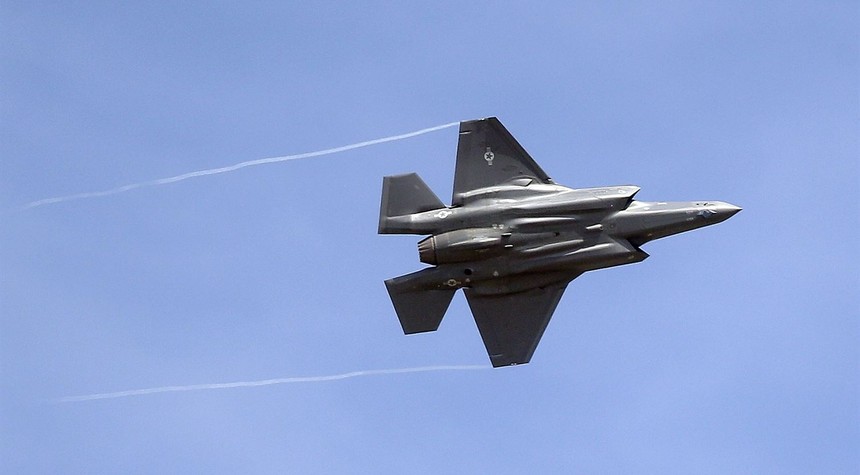U.S. Deploys F-35 and F-16 Fighter Jets to Confront Iranian Threat in Middle East
U.S. Defense Secretary Lloyd Austin has ordered the deployment of F-35 and F-16 fighter jets, along with the destroyer USS Thomas Hudner, to the Middle East in response to Iranian activities in the Strait of Hormuz. The move comes after recent incidents where Iranian Navy ships attempted to seize merchant vessels in the region.
The U.S. aims to defend its interests and safeguard freedom of navigation in the strategic waterway, which supplies more than one-fifth of the world’s oil. The fighter jets are intended to provide cover for ships traveling in the region:
US Defense Secretary Lloyd Austin has ordered F-35 and F-16 fighter jets deployed to the Middle East, as well as the destroyer USS Thomas Hudner, in response to Iranian activities in the Strait of Hormuz.
“In response to a number of recent alarming events in the Strait of Hormuz, the Secretary of Defense has ordered the deployment of the destroyer USS Thomas Hudner, F-35 fighters and F-16 fighters to the US Central Command Area of Responsibility to defend US interests and safeguard freedom of navigation in the region,” Pentagon deputy press secretary Sabrina Singh said Monday.
The deployments come after two incidents earlier this month in which Iranian Navy ships attempted to seize merchant vessels in the Strait of Hormuz and the Gulf of Oman.
The US Navy intervened in both incidents on July 5. In one instance, in which an Iranian vessel was approaching the Richmond Voyager oil tanker, Iranian personnel opened fire on the tanker and hit the ship near the crew’s living spaces.
This development comes amid increasing Russian aggression in the skies over Syria. The U.S. is considering military options to counter the situation without ceding any territory. Russia’s intensified military activity in Syria, in collaboration with Iran and the Syrian government, is aimed at pressuring the U.S. to withdraw from the region.
Tensions have escalated, and U.S. forces are closely monitoring Russian actions, including incidents like Russian warplanes targeting a U.S. surveillance drone and conducting joint training with Syrian militaries:
In addition, the defense official told reporters the U.S. is considering a number of military options to address increasing Russian aggression in the skies over Syria, which complicated efforts to strike an Islamic State group leader last weekend. The official declined to detail the options, but said the U.S. will not cede any territory and will continue to fly in the western part of the country on anti-Islamic State missions.
The Russian military activity, which has increased in frequency and aggression since March, stems from growing cooperation and coordination between Moscow, Tehran and the Syrian government to try to pressure the U.S. to leave Syria, the official said.
The official said Russia is beholden to Iran for its support in the war in Ukraine, and Tehran wants the U.S. out of Syria so it can more easily move lethal aid to Lebanese Hezbollah and threaten Israel. The U.S. has seen more cooperation, collaboration, planning and intelligence sharing, largely between mid-level Russian and Iranian Quds force leaders in Syria, to pressure the U.S. to remove troops from Syria, the official added.
Iran has been engaging in a series of attacks on shipping vessels in the Gulf waters since 2019. This situation will likely spark concerns over increased tensions between Washington and Tehran.





Post a Comment